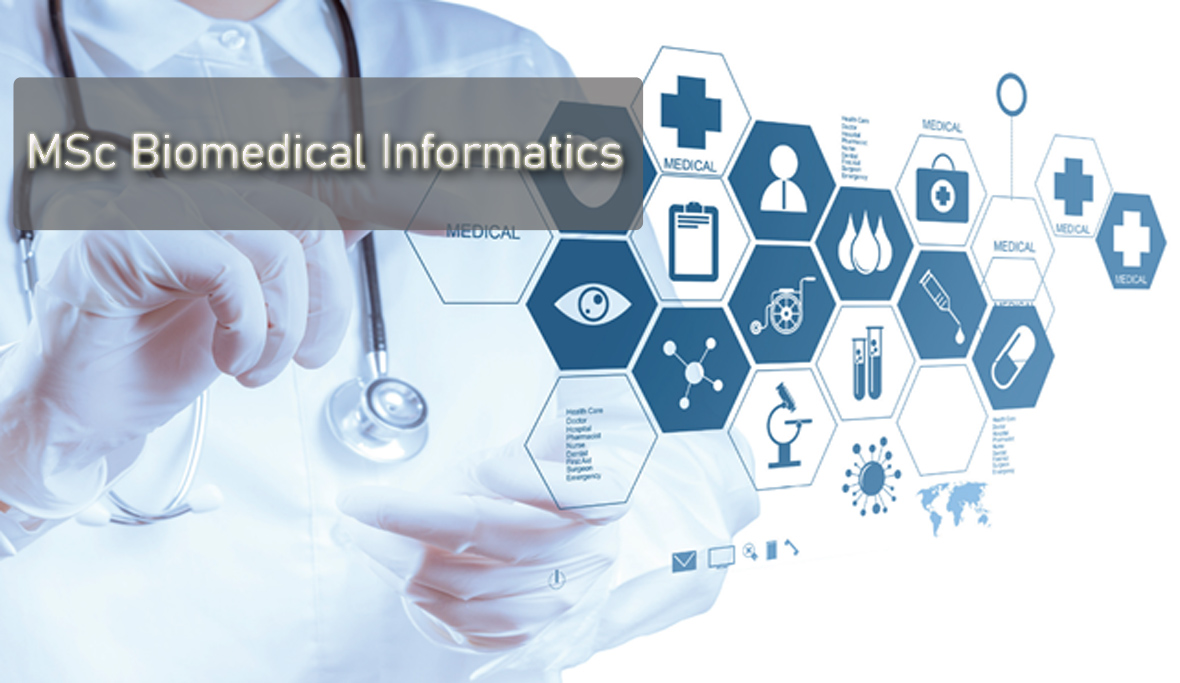
![]()
Biomedical Informatics is a discipline, which intersects the knowledge pertaining to Information Communication Technology (ICT), medicine and biology. It has emerged as one of the rapidly growing disciplines in the world where health sector expansions have been proposed with the aid of ICT. In a background such as this, the Postgraduate Institute of Medicine of University of Colombo, being the only postgraduate training institute for medical doctors in the country, took up the initiative to prepare the health professionals of this country to the emerging challenge of incorporating ICT to the countries health sector.
The incorporation of ICT into the health care setting could be described as a complex process requiring meticulous planning, liaison with proper authorities and stakeholders as well as an above average understanding of the countries health care setting which does not necessarily rely on the technology or the material resources alone. Many Western countries, which made use of the usual ICT implementation process in its health care setting, failed to achieve the expected goals mainly because of the mismatching between poor understanding of the health care needs and the systems that were implemented to support such needs. At the same time, mushrooming of ICT solutions at various levels with minimal understanding of its impact and sustainment has created a chaotic situation in managing the same while wastage of resources would become apparent as the time pass by.
The Master of Science Degree Programme in Biomedical Informatics is aimed at preparing the trainee to apply current Information and Communication Technologies to enhance the practice of medicine at various levels. This broadly includes the care of the sick, health promotion, disease prevention as well as health and medical education. This training programme specifically emphasizes the advancements made in Biomedical and health sciences and its utilization in their practices. Moreover, training in managerial skills pertaining to executing duties towards problem solving through the scientific approach, resource optimization and economization is emphasized. Thus, it is expected that this programme would eventually lead to better integration and management of ICT solutions in the health care sector by creating a pool of well trained professionals which would not only improve the country ‘s health indices but would also minimize the cost for the country in developing and implementing eHealth solutions.
![]()
At the end of the programme, the trainees should be able to apply knowledge, skills and favorable attitudes to deal with complex issues systematically and creatively. They would also be able to make sound decisions and communicate decisions clearly to different specialist and non-specialist groups. The trainee should demonstrate self-direction and originality in tackling and solving problems and be able to plan and implement tasks at professional levels. In the end, the graduate should be able to demonstrate critical awareness of current issues in the subject area and be able to apply techniques relevant to professional practice.
In addition, the trainee would also be able to demonstrate the following learning outcomes: –
Scholarship in Biomedical Informatics: The trainee would have a comprehensive and up-to-date knowledge in Biomedical Informatics, and detailed knowledge and understanding of specific areas in Biomedical Informatics, which he or she may wish to sub-specialize.
Methodological approach: The trainee would be competent in applying scientific approaches to problem solving with skills in research methodologies to solve problems in the field of Biomedical Informatics. Further, they should exercise initiatives and take personal responsibilities and should demonstrate skills of independent learning for their continuous profession’s development.
![]()
The minimum requirements shall be as follows:
- A Medical Degree registered with the Sri Lanka Medical Council and
- One year of internship recognized by the Sri Lanka Medical Council and
- One year of full-time post internship work experience in the health sector, recognized by the PGIM
OR
- Hold a Dental Degree and registered with the Sri Lanka Medical Council (SLMC), to practice as a Dental Surgeon and
- Completed at least 1 year in general dental practice in the government, university, armed forces or private sector at the time of closure of applications for the selection examination
Please refer to the relevant prospectus for the most up to date information. The prospectus of a particular programme contains official information pertaining to a programme approved by the Board of Management, University Senate and the University Grants Commission